Speeding fines and penalties
Posted by Thomas Hughes on 17 January 2019
We like to think that all drivers are well behaved behind the wheel, and stick to all the speed limits as they should. Whilst our black boxes help young drivers do this, we know that not everyone who drives does so with the law in mind, and can break the speed limits in place.
In 2017, speeding fines were increased, with harsher penalties for the worst offenders such as, in some cases, be fined up to 175% of your weekly income. We’ve decided to pull together a guide to show drivers what they can expect if they’re caught breaking the speed limit.
It is worth mentioning at this point that if you’re a new driver within the first 2 years of passing your test, your driving licence will be taken away if you build up more than 6 penalty points.
If you have been driving for more than 2 years, you can be disqualified from driving if you build up 12 or more penalty points within a 3 year period.
Speeding penalties
The minimum penalty you will receive for speeding is a £100 fine and 3 penalty points being added to your licence. The maximum possible fine for speeding is £1,000 (£2,500 if you’re speeding on a motorway). Whilst these amounts have stayed the same, law enforcement will be handing out a greater number of maximum-level fines.
Speed camera.
If you’re caught speeding by a speed camera, within 14 days of the offence you will receive:
Notice of Intended Prosecution (NIP)
Section 172 notice – to be signed and returned within 28 days, telling the police who was driving.
After returning the Section 172, you’ll be sent a Fixed Penalty Notice (FPN). If you ignore the original notice, you may have to go to court.
Stopped by police
If you’re seen speeding by the police and you’re stopped at the side of the road, they can:
Give you a verbal warning
Issue you with an FPN ( Fixed penalty notice)
Order you to go to court.
How much will I be fined?
Speeding will make you liable to a fine equal to 150 per cent of your weekly income – however, these are generally reserved for those being excessively over the speed limit.
Understanding a Fixed Penalty Notice
If you get an FPN, you will have the option to plead guilty or not guilty.
If you plead guilty.
You’ll have to pay the fine presented to you and have the points put on to your licence unless you’re given the option to attend a speed awareness course instead. You will only be given the option to go to a speed awareness course if it is your first offence, or you haven’t been on one in the last 3 years.
If you plead not guilty.
Pleading not guilty means you will have to go to court, and you could be fined more (and given more penalty points) if the court decides that you are guilty of speeding. You could also be disqualified from driving, or have your licence suspended.
We’re sure that many of you don’t speed, but unfortunately, there are some drivers that ignore the speed limits put in place. Not only is this a crime, but it also puts themselves and other drivers in danger. Speed limits are put into place for a reason, so make sure you never have to follow this advice and stick to them


